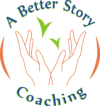Coaching During Transitions
I specialize in working with people and businesses going through transitions. My COR.E Transitions Dynamics Specialist certification has prepared me to coach clients holistically because the change in one part of life undoubtedly influences others.
The definition of life transitions can be very personal, but here are a few examples of situations that deserve time and attention: career or job status changes, leadership/management teams changes, business' restructuring, relocation, family relationships, health issues, divorce, dating, parenting, losses or the death of a loved one.
Transitions can be a great opportunity to check-in with ourselves and re-shuffle our priorities to live more intentionally. They play an essential role in our personal growth, and if embraced with the right support, we can create a better story.
The definition of life transitions can be very personal, but here are a few examples of situations that deserve time and attention: career or job status changes, leadership/management teams changes, business' restructuring, relocation, family relationships, health issues, divorce, dating, parenting, losses or the death of a loved one.
Transitions can be a great opportunity to check-in with ourselves and re-shuffle our priorities to live more intentionally. They play an essential role in our personal growth, and if embraced with the right support, we can create a better story.
The Energy Leadership Index™ Assesment
EVERYONE is a leader either by choice or default.
Leadership is how you interact with everyone, including yourself. The E.L.I. is an attitudinal assessment, which is based on an energy/action model. This assessment differs from personality assessments as it is not intended to label a person and have them work well within that label. Instead, it measures your level of energy based on your attitude, or perception and perspective of your world. Because attitude is subjective, it can be altered. By working with a coach using the E.L.I., you can alter your attitude and perspective, make a shift in your consciousness, and increase your energy and leadership effectiveness.
© 2006-2011 Institute for Professional Excellence in Coaching (iPEC)
© 2006-2011 Institute for Professional Excellence in Coaching (iPEC)
Previous slide
Next slide







